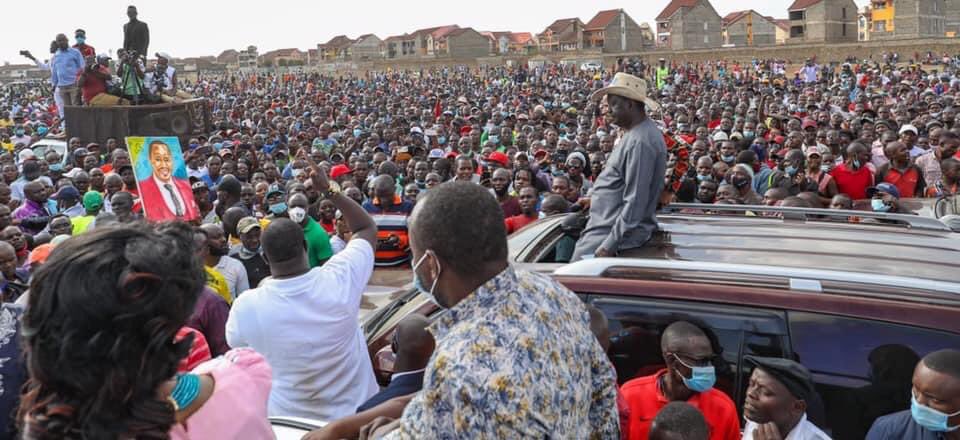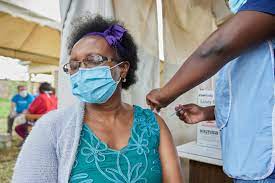Share this
On the steps of Harambee House in Nairobi, Health Cabinet Secretary Mutahi Kagwe was reminding Kenyans every day how deadly this virus was. His “if you continue to behave normally, this disease will treat us abnormally” statement became a house-hold phrase. On the other hand, the political class to which he belonged to were doing just that – behaving normally. They saw government directives on gatherings as mere suggestions, or rules that did not apply to their elite class.
The pandemic exposed the doublespeak that is a characteristic of the Kenyan politicians. While Kagwe was admonishing Kenyans to stay at home, wash hands, wear masks, keep social distance and so on, his own colleagues in cabinet were at times seen in political meetings or social events where these same protocols were thrown to the dogs.
Nairobi Senator Johnson Sakaja is a good example of this doublespeak. Despite chairing a Senate committee tasked with providing oversight to the government response to the pandemic, he was arrested in Mid-July 2020 flouting the containment measures by drinking at a bar in Nairobi’s Kilimani area way after curfew hours.
While there was a ban on political gatherings announced than none other than the country’s president – politicians from the three sides of Kenya’s political divide continued with political activity.
At Statehouse Nairobi, President Uhuru Kenyatta twice hosted Jubilee Parliamentary Group meetings, ostensibly to crack the whip on party members who were gravitating towards a splinter group within the ruling party.
On the other hand Deputy President William Ruto continued to host delegation after delegation of youth groups, religious groupings, women groups and representatives of various communities at his Karen and Sugoi residences. In most of these events, there were no strict adherence to directives on wearing of masks or social distancing – especially when it was time for group photos. In fact, the Deputy President would on several occasions be seen shaking hands – a practice that was greatly discouraged by WHO.
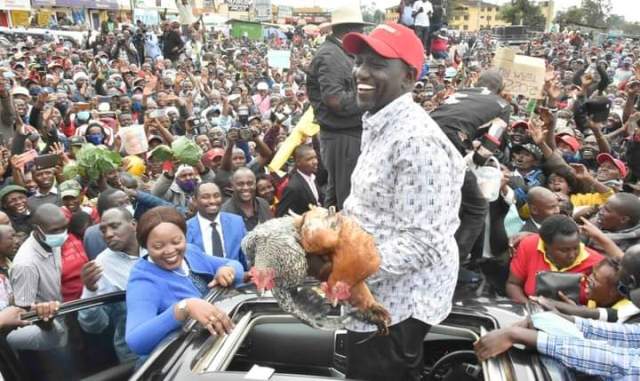
The campaigns in support and opposition to the proposal to amend the 2010 constitution have perhaps provided the biggest opportunity for top politicians to flout these regulations.
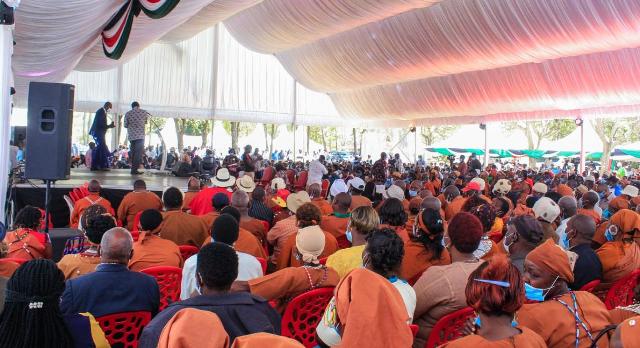
In the above photo taken in October, opposition leader Raila Odinga hosted more than 2,000 people at his father’s Kang’o Ka Jaramogi home in Bondo. The meeting was meant to unite Luo and Kikuyu communities ahead of the coming political processes. If you look keenly enough you will notice that there was little effort put towards realizing social distancing, very few people in the audience were also wearing their masks properly.
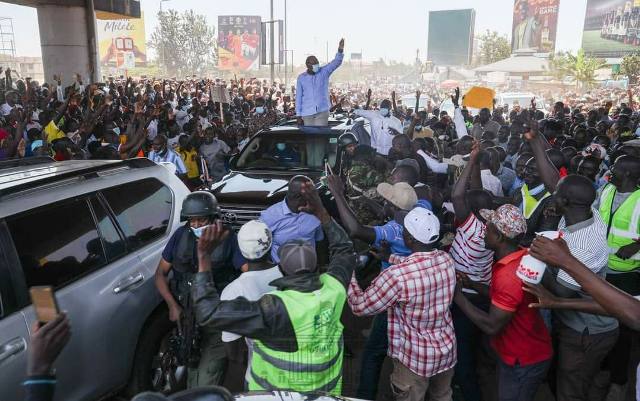
In the above photo taken during a visit by President Kenyatta to Kisumu a few days after the Mashujaa Day celebrations in Kisii, the president is mobbed by a crowd. He acknowledges them by getting on top of his vehicle to great them. While he is properly wearing his own mask, most of the people in the crowd are not spotting any. Later that day he proceeded to address a rally at Jommo Kenyatta grounds attended by thousands of residents, most of whom were not wearing any mask.
I chose to focus on political activities in October 2020 because this is the month that the country suffered the biggest effect of the virus. In the president’s own words, the death toll from Covid-19 was four times what it had been before.
This is four times what the rate was in September. If one person was positive in September, four people became positive in October. That is the literal interpretation of this statistic. In October only, we have had over 15,000 new cases of Corona infections and approximately 300 deaths according to the National Multi-Agency Command Centre on COVID- 19.
Uhuru Kenyatta during his 16th national address since Covid-19 broke out.
The flouting of Covid-19 prevention measures were not however limited to the four examples I have given. For instance, while the government only allowed 200 people to attend funerals during this period, we have seen burials attended by this country’s leadership that attracted more than 3,000 attendants. The most recent being the burial of Amani National Congress Party Leader Musalia Mudavadi’s mother.
While these meetings directly exposed those present to the virus, it’s the bigger picture it sent to the 47 million Kenyans that’s more important. At a time when those enforcing these protocols are dealing with negative attitudes, fighting fake news and other forms of resistance – the country’s top leadership was in their action contributing to the attitudes that players in the public health sector were trying to curb.
How does a bodaboda rider respect curfew times when he can see politicians going about their lives like we are not in the middle of a pandemic? How does a small bar operating in a remote village close its doors to patrons when they can see their leaders “behaving normally.”
It is perhaps these actions that contributed to a significant segment of our population believing the lies that “Covid-19 was a conspiracy theory of the West and elites. ” Scandals such as those that affected the medicals supplies Agency, Kemsa, in which well connected businessmen and political operatives were awarded multimillion contracts to supply PPEs at exaggerated prices did not help either.
If anything has come out clearly from this pandemic, it’s the hypocrisy of this country’s political class…Sad, that with it came needless suffering for those who have gotten infected with the virus and loss of lives.


